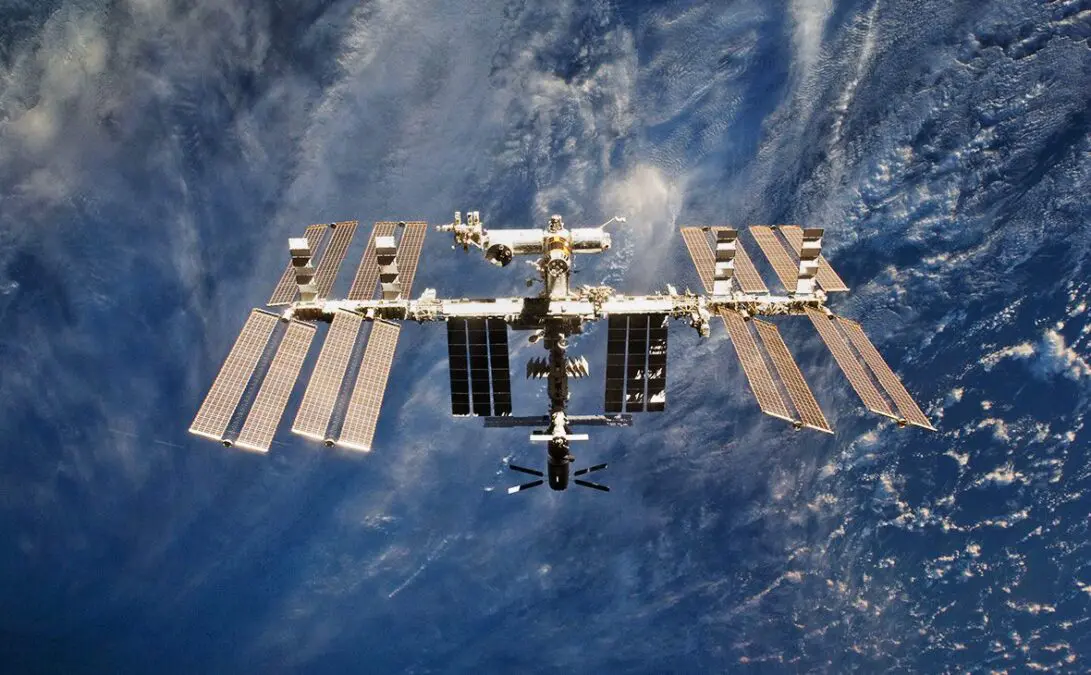Last year, the International Space Station celebrated its 20th anniversary. Perhaps this is her last anniversary. Understanding what the future holds for the ISS.
The ISS is the result of collaboration between the United States, Russia, Canada, Japan and member countries of the European Space Agency (ESA). Officially approved for use until December 2024. What will replace it? We tell you about the plans of Russia and the United States.
USA
Funding for the space station is slated to dry up this decade, although it is unclear exactly when this will happen. NASA and the agency’s international partners have guaranteed support for the ISS until 2024, and some congressional supporters have advocated extending the agency’s space station budget until 2028. What will happen next, one can only guess, but there is a high probability that this will entail the decommissioning of the ISS. It will be replaced by private commercial space stations.
For example, Houston-based Axiom Space plans to use the ISS as a starting point to build its own station in low Earth orbit (LEO). The company plans to launch its first module into the space station by 2024 and expand from there. In addition to the crew quarters, Axiom plans to build at least two more: one will be a laboratory and production facility, and the other will be a panoramic observatory. The company’s plan is to keep the three modules attached to the ISS until it is ready for decommissioning – around 2028.
Axiom will also provide other services, including the purchase of tourist flights to the ISS aboard SpaceX’s Crew Dragon capsules. The company has already signed a contract with SpaceX to that effect, and the first of these private missions is expected to launch in late 2021.
California-based Orion Span has plans to build its own station called Aurora. According to representatives of the startup, it can be launched at the end of 2021 and start accepting clients next year. However, funding uncertainty could complicate the company’s plans. Another company, Bigelow Aerospace, has long planned to establish private outposts in orbit and on the Moon. But management fired all of its staff in March this year.
Over the past several years, NASA has worked hard to fuel commercial interest in the space station. The agency recently announced the ISS is open for trading on the Nasdaq Stock Exchange. The Trump administration has pushed the idea of a subsidy to move the ISS to a commercial operator. The logic is simple: NASA officials want to build lunar bases and send astronauts to Mars.
This is difficult to do when the agency has to spend nearly a fifth of its annual budget to keep the ISS running.
At the same time, the founder of Tesla and SpaceX, Elon Musk, announced the need to build an inhabited base on the moon, and then a city on Mars. So he answered the question about the need to extend the operation of the International Space Station (ISS) during the New Knowledge marathon.
“We haven’t been on the moon for too long. We must go back there and build a permanent base on the moon. I’m talking about a permanently inhabited base. And then – a city on Mars. Humanity will become a cosmic species, inhabitants of many planets, and not just one, ”the Independent quotes.
In his opinion, the ISS has an important function, cooperation in space is also very important, but we need to go beyond this issue. “The next logical step would be to create a base on the moon, a city on Mars,” Musk said.
Russia
In May 2017, Dmitry Rogozin, who was then Deputy Prime Minister, instructed Roscosmos to work out the issue of creating an alternative to the ISS. As you know, from 2025 Russia will withdraw from the ISS project and begin to create a new ROSS station – the Russian orbital station. The head of Roscosmos Dmitry Rogozin said earlier that the President of Russia as a whole reacted positively to the proposal of the state corporation to create a Russian orbital service station, “but the point is in the details.”
The principle of assembling ROSS in orbit will be modular and resemble a LEGO constructor, it is supposed to create a special scientific module, but universality should become the basis of the new station, said the head of the Russian Academy of Sciences Alexander Sergeev in an interview with RIA Novosti.
“All this now makes us take a very serious look at the new concept, at the new design. It is very interesting. It is assumed that there will also be a special scientific block that allows you to engage in science. But the main thing is versatility in various aspects of space activity – science, service, modern monitoring, and assembly of vehicles. This station can be further built up with new blocks, transition compartments, assembled in the form of some kind of LEGO, ”said Sergeev.
The decision to create the Russian Orbital Service Station (ROSS) will depend on the general economic situation in the country, the President of the Russian Academy of Sciences said.
Earlier this year, the head of Roscosmos announced that the new orbital station is likely to be visited rather than habitable, as this will reduce operating costs. The constant presence can be justified only by the constant loading of the station with tasks. According to Rogozin, the main tasks that will be solved at the orbital station are the assembly of complex flight modules, refueling of ships and their repair, testing the performance of new space systems and equipment in open space, controlling individual orbital groupings, as well as installing a payload, including including for remote sensing of the Earth, communication and relaying. Space tourism is possible at such a station, but in the scope of a separate module.







